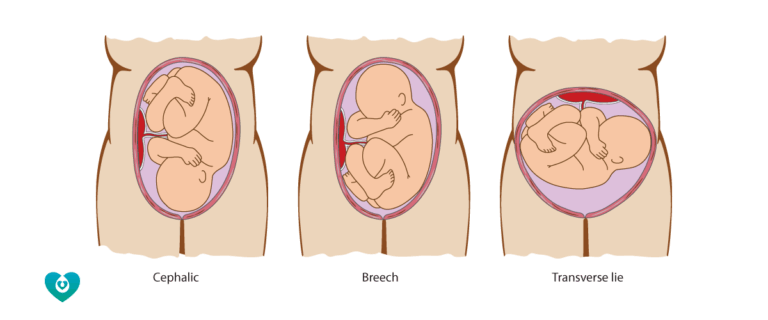At Acumamas, we believe that fertility care must begin with understanding—not just treatment. For many patients, the journey to conception is filled with uncertainty, and despite visits to doctors, repeated lab work, and even fertility procedures, there often remains a lingering question: “Why is this happening to me?”
This is the question we hold sacred. Not because it has a simple answer, but because we believe every person deserves the time, care, and investigation it takes to uncover it.
Our diagnostic philosophy is built on the premise that your fertility challenges are not just symptoms to suppress, but messages from your body—messages that deserve to be heard, explored, and addressed with care. To do that, we’ve developed a multidisciplinary diagnostic framework that brings together the best of conventional testing and integrative clinical wisdom.
Seeing the whole picture before we act
One of the most common experiences our patients describe is having been told their test results are “normal” even when they feel deeply that something is off. In our view, lab values are only one part of the diagnostic puzzle. Equally important are your symptoms, cycle history, lived experience, and emotional state.
We recognize that standard blood tests can miss subtle hormonal shifts—especially those that fluctuate throughout the menstrual cycle or in response to chronic stress. This is why we often incorporate more dynamic forms of testing, including the DUTCH test and saliva hormone panels, to gain a broader understanding of how your endocrine system is functioning over time.
But we don’t stop at test results. Our process begins with a detailed intake that explores your health history, menstrual patterns, lifestyle, emotional wellbeing, and fertility goals. This helps us identify patterns—whether it’s signs of anovulation, progesterone deficiency, elevated cortisol, or nutrient deficiencies—that may be contributing to reproductive challenges.
Why we use multiple testing modalities
There is no single test that can fully explain fertility. The hormonal system is dynamic and influenced by stress, nutrition, sleep, and inflammation. That’s why we use a layered approach to diagnostics, integrating several tools depending on your needs.
The DUTCH test, which measures hormone metabolites via dried urine, allows us to understand not just how much estrogen or progesterone your body is producing, but how well you’re clearing those hormones. For someone with symptoms of estrogen dominance—like heavy periods, mood swings, or endometriosis-like pain—this test helps us distinguish between overproduction and sluggish detoxification, each requiring different treatment strategies.
Saliva hormone testing, conducted through LifeLabs, is another useful tool when assessing ovulation and adrenal function. Because hormones like progesterone and cortisol change dramatically throughout the day or menstrual cycle, a single blood test may not capture these variations. Saliva tests offer the ability to take samples at multiple time points, giving us a more complete picture of hormonal rhythm and timing—especially in patients with suspected luteal phase defects or chronic stress.
We also rely on conventional serum testing through LifeLabs for key metabolic and nutrient markers: thyroid function, fasting insulin, ferritin, vitamin D, and inflammatory markers like CRP or ESR. Even mild imbalances in these areas can affect ovulation, egg quality, and implantation. For instance, subclinical hypothyroidism—where TSH is within range but not optimal—can increase miscarriage risk and interfere with IVF success. Identifying and addressing these subtleties allows us to support your fertility from a holistic angle.
What this looks like in practice
Once we gather all necessary data, your care doesn’t fall into a rigid protocol. Instead, we use your diagnostic profile to recommend you a personalized plan—one that may include acupuncture, naturopathic medicine, counselling, or a combination of all three.
If your labs show that progesterone is low or not sustaining during the luteal phase, your acupuncture sessions may be timed more precisely to support the corpus luteum after ovulation. Your naturopath might recommend botanical supports like chasteberry or nutrients like B6 and magnesium, while also addressing potential stressors that could be suppressing ovulatory function.
If you are living with PCOS, our approach would begin by assessing insulin resistance, androgen excess, and ovulatory patterns. Treatment would involve acupuncture protocols known to support ovulation regulation and androgen balance, alongside naturopathic interventions such as inositol, anti-inflammatory nutrition, and menstrual tracking to measure improvements.
For patients navigating IVF, our role is to complement—not interfere with—their existing fertility care. Pre-transfer acupuncture is timed to enhance uterine blood flow, while post-transfer treatments are designed to support implantation and calm the nervous system. Our naturopaths adjust supplement protocols based on your stimulation cycle, taking care not to introduce anything that could conflict with your medication regimen. All of this is done in communication with you—and, when possible, in collaboration with your fertility clinic.
Throughout your care, your practitioner team meets regularly to adjust and align your treatment plan. It is a dynamic process, just like the body. We believe this level of responsiveness is key to providing care that is not only effective but also humane.
Cost transparency and Accessibility
We are mindful that cost can be a barrier to diagnostic testing. That’s why we walk each patient through testing options—including what may be covered by public or extended health plans—and only recommend labs that will meaningfully impact the course of care.
Here’s what most patients can expect:
- DUTCH test (ordered privately): $400–$500 CAD
- Saliva hormone panels (via LifeLabs): $150–$300 CAD
- Serum labs (via LifeLabs): Often partially or fully covered with an Physician referral; private pay ranges from $100–$250 CAD
- Cycle tracking (BBT charting): Free, with guidance from your practitioner
We will always prioritize what is most relevant to your presentation—there is no one-size-fits-all panel, and we never order tests unless they inform your care plan.
A collaborative and compassionate model
Our diagnostic philosophy is not meant to replace the care you may be receiving elsewhere—it is meant to add depth, context, and continuity. Whether you are just beginning to explore your fertility or have already worked with a reproductive endocrinologist, we aim to support you with curiosity, thoroughness, and respect.
At Acumamas, we see diagnostics as a form of advocacy: a way to give language to what your body has already been trying to tell you. It’s not about over-medicalizing your experience, nor is it about quick fixes. It’s about slowing down, asking better questions, and building a foundation of trust in both your care team and your body’s capacity to heal.
Ready to begin
If you’re tired of feeling in the dark about your cycle, your hormones, or your path to pregnancy, we invite you to begin a diagnostic conversation with us.
Whether through acupuncture, naturopathy, or counseling, our team is here to help you make sense of what’s happening—and support you in moving forward with greater clarity and confidence.
Book your initial consultation today with a fertility-focused naturopath or acupuncturist at Acumamas.






